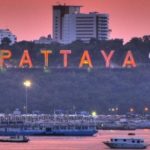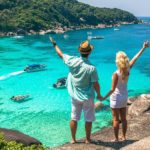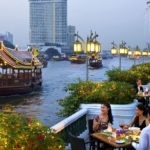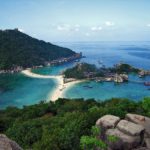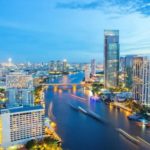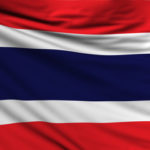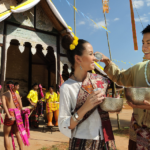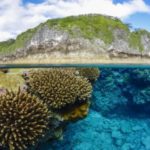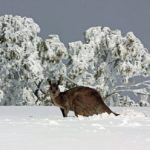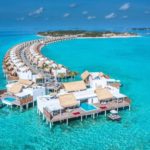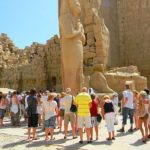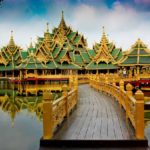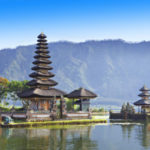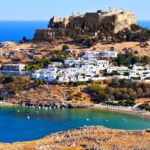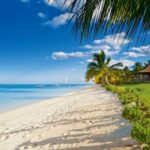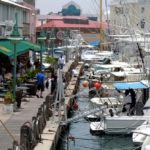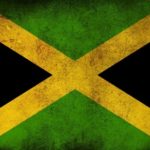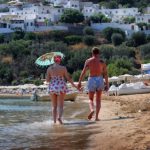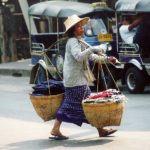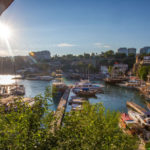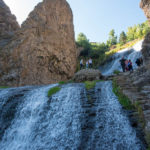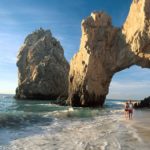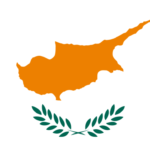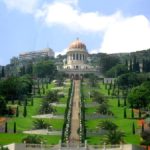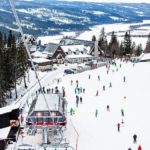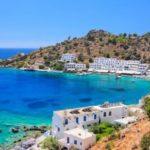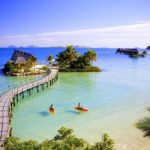Interesting facts about Phuket
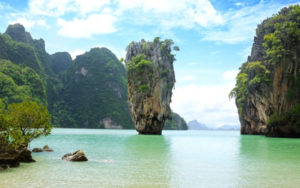 Paradise tropical island Phuket – one of the most popular Thai resorts. Hundreds of tour operators send millions of tourists here, so the entire local infrastructure is designed to meet their needs. However, in addition to traditional tourist attractions, Phuket is very interesting and the other side of its life. Thai towns and villages where there are almost no foreigners are surprisingly distinctive and interesting.
Paradise tropical island Phuket – one of the most popular Thai resorts. Hundreds of tour operators send millions of tourists here, so the entire local infrastructure is designed to meet their needs. However, in addition to traditional tourist attractions, Phuket is very interesting and the other side of its life. Thai towns and villages where there are almost no foreigners are surprisingly distinctive and interesting.
Among all the resorts in Thailand, Phuket is the third, the fourth most popular. Another big three cities popular with foreigners are Bangkok, Chiang Mai and Pattaya.
There is no pronounced rainy season. From mid-April to mid-October, it just becomes a few degrees cooler, and the sea is often hectic. It rains during the day once or twice a week, and more often at all only at night. However, the Phuket weather is completely unpredictable.
Because of the whimsical terrain in Phuket, hundreds, if not thousands of microclimate zones. The sun can shine over your head, and it will be raining a kilometer from you at this time.
The highest point of the island is the mountain, on top of which stands the temple, known as the Big Buddha. From there you can see both seas washing the island.
Prices in the cafes, focused on the local population, three times-four times lower than in the cafe for tourists. The portions are always larger, and the food is often tastier.
The most expensive area to stay – Laguna, prices are just space. And the most budget – Chalong. The central part of the island, the Kathu district, is also notable for humane housing prices and everything else.
There is almost no public transport in Phuket – just a couple of bus routes along the main roads, plus buses running in April 2018 that run along the coastline. Resting here, it is better to rent a motorbike or a car, since the price of a taxi here is very, very high.
For a noisy nightlife, tourists usually go to the Patong area, this is a kind of a local branch of Pattaya with its nightlife.
Some exchange offices here accept the exchange of Russian rubles, but the course is usually very unprofitable. It is best to change cash dollars.
Mosques in Phuket are no less than Buddhist temples. In Thailand, about 10% of the population is Muslim, and most of them live in the south, since the influence of Muslim Malaysia is felt more strongly here.
Studio apartment here can be removed from 5 thousand baht (about 10 thousand rubles in 2018) per month, if you sign a contract for at least six months.
Phuket is a rather expensive place, prices are higher than even in Bangkok. This also applies to tourist infrastructure, and especially local.
Phuket Airport is one of only two in the world, where planes take off and land, flying just meters above the beach. There are always plenty of tourists with cameras, despite the fact that there are signs everywhere prohibiting photography.
The traffic on the island’s roads is left-handed, as is the case throughout Thailand.
Most of the local Russian-speaking community lives in the south of the island, in the Rawai area.
Among foreign tourists are dominated by Russians and Chinese. Many more Australians. In general, Phuket is a very multinational place, of whom there is no.
All excursions that are offered by Russian tour operators and Russian-speaking guides can be bought at any local travel agency for two to three times cheaper. Simply go out and look around.
The longest beach in Phuket is Bang Tao, it is almost six kilometers long.
In addition to public beaches, there are also so-called wild ones, that is, those where there is no infrastructure. You can swim there only at your own peril and risk – there are no rescuers there either.
Walking around the island, you should look up – coconut palms are everywhere, and coconut matures all year round. Falling coconut on the head is very dangerous. For example, in the Pacific country of the Kingdom of Tonga, this circumstance occupies one of the first lines in the statistics of the causes of premature death.
